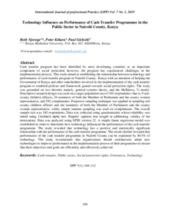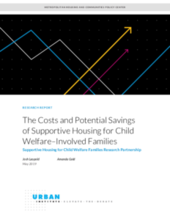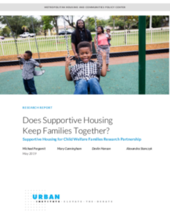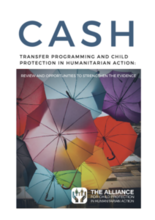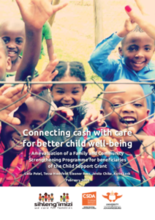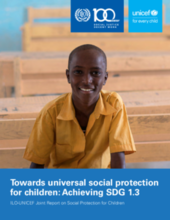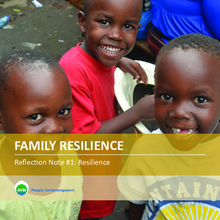Displaying 41 - 50 of 271
The present study uses system dynamics modeling to inform decision-making by testing policies for scaling the Family Unification Program (FUP), a U.S. federal initiative connecting inadequately housed families involved in child welfare with long-term rental subsidies to avoid foster placement.
The purpose of this study was to establish the relationship between technology as a capacity building strategy and performance of the orphans and vulnerable children cash transfer program in Nairobi County, Kenya.
This study evaluated the effectiveness of the US Department of Health and Human Services’ Administration for Children and Families funded Partnerships to Demonstrate the Effectiveness of Supportive Housing for Families in the Child Welfare System, a five-year, $25 million demonstration that provided supportive housing to families in the child welfare system, in five sites. This report summarizes the results of the cost study, which estimates the costs of the housing and services offered in the demonstration and any savings, or additional costs, resulting from the demonstration’s effects on families’ use of homeless programs and child welfare services.
This report provides findings from the Urban Institute's impact analysis of a program that provided supportive housing to families in the child welfare system in the US.
This webinar, hosted by the Cash Transfer and Child Protection Task Force, aimed to discuss the newly released report, “Cash Transfer Programming and Child Protection in Humanitarian Action: Review and Opportunities to Strengthen the Evidence.”
This report summarizes the evidence for cash transfer programming and child protection in humanitarian contexts and recommends areas for action and further research.
This report presents the findings of an intervention study evaluating the short-term outcomes of Sihleng’imizi Family Programme, an evidence-based preventative social-educational intervention.
UNICEF and ILO published a joint report aiming to contribute to the ongoing discussions about the future of social protection for children.
This Reflection Note is intended as a means for AVSI staff and implementing partners on the FARE project to capture emerging learning as relates to the theory of change elaborated during project design.
The primary goal of the ASPIRES project is to support gender-sensitive programming, research and learning to improve the economic security of highly vulnerable individuals, families and children.

